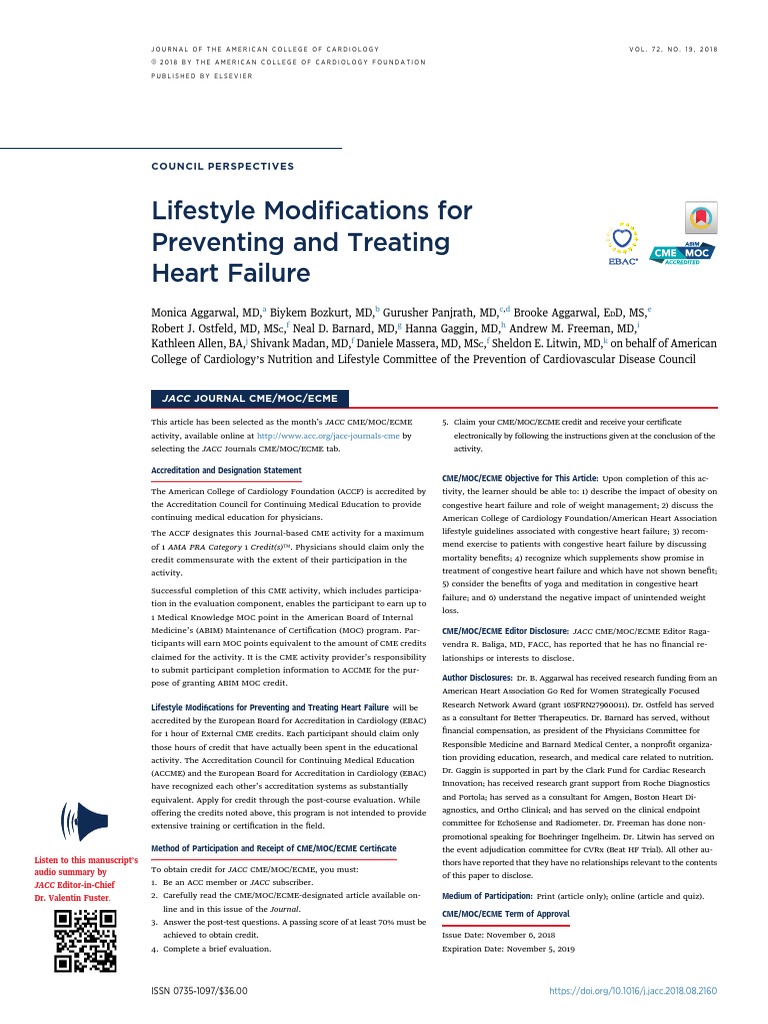

Lifestyle modifications play a pivotal function in supporting long-term cardiac health, shaping the trajectory of your cardiovascular well-being. A healthy heart is the cornerstone of a fulfilling life, and understanding the significant impact of daily habits can empower you to make informed choices. This article explores practical lifestyle modifications that promote long-term heart health, offering concrete strategies and actionable advice to help you navigate this crucial facet of preventative care. We’ll delve into diet, exercise, stress management, and other crucial elements, outlining how integrating these lifestyle modifications into your daily routine can safeguard your heart for years to come. This article is structured into sections dedicated to each lifestyle modification and concludes with recommendations for moving forward.
Dietary Strategies for a Healthy Heart
Balancing Your Plate for Cardiovascular Wellness
A heart-healthy diet is paramount in maintaining optimal cardiovascular function. The foods we consume directly influence the health of our hearts. Consuming a diet rich in fruits, vegetables, and whole grains offers essential vitamins, minerals, and fiber that promote heart health. Studies consistently show that individuals with diets rich in plant-based foods have a lower risk of heart disease. Furthermore, choosing lean protein sources such as fish, poultry, and beans can contribute to healthy cholesterol levels. Limiting processed foods, saturated fats, and excessive sodium is equally crucial. This dietary approach not only helps maintain healthy cholesterol levels but also minimizes the risk of hypertension and blood sugar imbalances. Dietary modifications can have a significant impact on overall health and well-being. For example, switching from refined grains to whole grains can contribute to better blood sugar control. The Mediterranean diet, recognized for its heart-protective properties, emphasizes fresh produce, olive oil, and lean protein. It has been shown to reduce the risk of heart disease. Consider incorporating healthy fats like avocados and nuts into your diet for added heart benefits. The key to a heart-healthy diet is moderation and consistency.
The Power of Physical Activity
Exercise and Its Impact on Cardiac Health
Regular physical activity is an indispensable component of cardiovascular health. Exercise plays a vital function in maintaining a healthy weight, lowering blood pressure, and improving cholesterol levels. Engaging in at least 150 minutes of moderate-intensity aerobic activity per week is recommended for most adults. Activities like brisk walking, swimming, or cycling are excellent choices. Incorporating strength training exercises at least twice a week can further enhance muscle strength and bone density, contributing to overall well-being. Exercise not only benefits the heart but also strengthens the entire body. For instance, individuals who regularly engage in physical activity report improved mood and reduced stress levels, further contributing to a healthier lifestyle. Physical activity boosts cardiovascular health through improved circulation and the strengthening of the heart muscle, thus preventing heart disease. A study published in the Journal of the American Heart Association demonstrated a clear correlation between regular exercise and reduced risk of heart attack and stroke.
Related Post : Preventive Measures Reducing Cardiovascular Risk Factors
Stress Management Techniques
Mindfulness and Cardiac Health
Chronic stress can have a detrimental effect on the cardiovascular system, potentially increasing blood pressure, heart rate, and inflammation. Managing stress is a crucial facet of supporting long-term cardiac health. Techniques such as meditation, deep breathing exercises, and yoga can help calm the mind and body, reducing the negative impact of stress. Mindfulness practices involve focusing on the present moment without judgment, promoting a sense of calm and reducing stress hormones such as cortisol. Incorporating these practices into daily routines can positively impact mental well-being, making a significant contribution to cardiovascular health. For example, practicing mindfulness techniques before stressful situations can prepare individuals for challenges and improve their coping mechanisms. A Harvard study revealed a strong link between stress management techniques and improved cardiovascular health markers, including lower blood pressure and improved heart rate variability.
Sleep Hygiene and Cardiovascular Health
The Importance of Quality Sleep
Adequate sleep is fundamental to overall health, including cardiac health. Sleep deprivation can lead to an boost in blood pressure and inflammation, potentially increasing the risk of cardiovascular disease. Aim for 7-8 hours of quality sleep each night to allow your body to repair and restore. Establishing a regular sleep schedule and creating a relaxing bedtime routine can contribute to better sleep quality. Creating a dark, quiet, and cool environment in your bedroom can also facilitate better sleep. Sleep plays a vital function in regulating hormones that affect heart health. Studies have shown a strong correlation between insufficient sleep and an boostd risk of hypertension and stroke.
Social Support and Mental Wellbeing
Building Connections for Cardiac Wellness
Maintaining strong social connections and nurturing positive relationships are essential facets of overall well-being and, by extension, cardiac health. Social support systems can offer emotional comfort, reduce stress, and promote healthy behaviors. Strong social connections offer emotional support, enabling individuals to navigate life’s challenges more effectively. Engaging in activities with friends and family can also offer a sense of belonging and reduce feelings of isolation, contributing to stress reduction. Numerous studies have shown a link between strong social support and lower blood pressure and improved mental health, thus contributing to better cardiovascular health. For instance, joining a support group for individuals managing cardiovascular conditions can offer valuable insights and encouragement.
The function of Regular Check-ups in Cardiac Care
Monitoring Your Progress Towards a Healthy Heart
Regular check-ups with your physician are a fundamental facet of preventative care for cardiac health. These consultations offer opportunities to monitor your cardiovascular health status, assess potential risk factors, and adjust your lifestyle modifications as needed. Regular check-ups help individuals track their progress, providing valuable insights into their cardiovascular health trajectory. Furthermore, regular visits allow physicians to assess potential risk factors, tailor recommendations to individual needs, and determine any emerging issues promptly. These proactive steps allow for early detection and management of conditions, significantly influencing overall cardiac health.
determineing and Addressing Underlying Conditions
Recognizing Systemic Impacts on Cardiac Health
Acknowledging and managing underlying conditions is crucial for effective long-term cardiac health. Conditions like diabetes, high blood pressure, and high cholesterol can significantly boost the risk of cardiovascular disease. Addressing these underlying conditions through medical interventions, when necessary, along with lifestyle modifications, can help reduce the overall risk of cardiovascular disease. For instance, monitoring blood pressure and blood sugar levels regularly can help in early detection and management of conditions.
Long-Term Commitment to Lifestyle Modifications
Sustaining Healthy Habits for Lasting Well-being
Establishing and maintaining a commitment to long-term lifestyle modifications are key for sustainable cardiac health. Remember that achieving heart health is an ongoing process. The objective is to integrate healthy habits into your daily routine rather than attempting drastic changes. This sustained effort can significantly reduce the risk of cardiovascular diseases and improve overall well-being.
Importance of Professional Guidance
Seeking Support and Expertise
Seeking guidance from healthcare professionals is essential in developing a personalized lifestyle modification plan for long-term cardiac health. Professionals like physicians or registered dietitians can offer tailored advice, evaluate your unique needs, and help you create a plan that aligns with your specific situation and objectives.
In conclusion, lifestyle modifications are crucial for long-term cardiac health. By incorporating these strategies into your daily routine, you can significantly reduce your risk of cardiovascular diseases. Embrace a heart-healthy lifestyle now and experience the positive impact on your overall well-being. Schedule a consultation with your physician or a registered dietitian to create a personalized plan that aligns with your specific needs and health objectives. Start your journey to a healthier heart today!